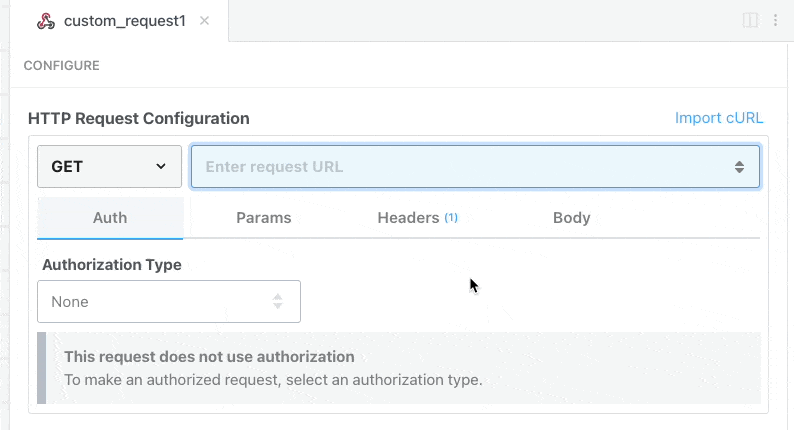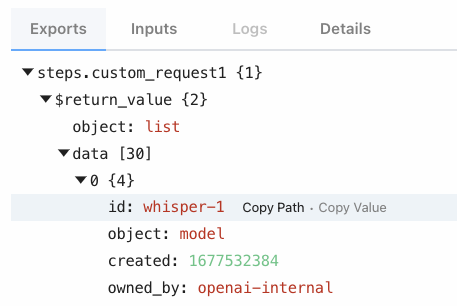What do you want to automate
with LinkedIn Ads and HTTP / Webhook?
Prompt, edit and deploy AI agents that connect to LinkedIn Ads, HTTP / Webhook and 3,000+ other apps in seconds.
Trusted by 1,000,000+ developers from startups to Fortune 500 companies
Popular Ways to Connect LinkedIn Ads with HTTP / Webhook#
Popular LinkedIn Ads and HTTP / Webhook Triggers#
Get a URL and emit the full HTTP event on every request (including headers and query parameters). You can also configure the HTTP response code, body, and more.
Get a URL and emit the HTTP body as an event on every request
Emit new event when a fresh response is received on the event registration form. User needs to configure the prop of the specific event. See the documentation
Emit new event when a new lead is captured through a form. See the documentation
Emit new event when the content of the URL changes.
Popular LinkedIn Ads and HTTP / Webhook Actions#
Queries the Analytics Finder to get analytics for the specified entity i.e company, account, campaign. See the docs here
Sample query using analytics finder that gets analytics for a particular account for date range starting in a given year. See the docs here
Send an HTTP request using any method and URL. Optionally configure query string parameters, headers, and basic auth.
Send an HTTP GET request to any URL. Optionally configure query string parameters, headers and basic auth.
Sample query using analytics finder that gets analytics for a particular campaign in a date range starting in a given year. See the docs here
Overview of LinkedIn Ads#
The LinkedIn Ads API on Pipedream enables you to automate and integrate your LinkedIn advertising efforts with other services. Fetch campaign data, manage ad accounts, or automate ad creation and adjustments. With Pipedream, you can trigger workflows with HTTP requests, emails, and on a schedule, and connect to thousands of other apps with minimal effort.
Connect LinkedIn Ads#
import { axios } from "@pipedream/platform"
export default defineComponent({
props: {
linkedin_ads: {
type: "app",
app: "linkedin_ads",
}
},
async run({steps, $}) {
return await axios($, {
url: `https://api.linkedin.com/v2/me`,
headers: {
Authorization: `Bearer ${this.linkedin_ads.$auth.oauth_access_token}`,
},
})
},
})
Overview of HTTP / Webhook#
Build, test, and send HTTP requests without code using your Pipedream workflows. The HTTP / Webhook action is a tool to build HTTP requests with a Postman-like graphical interface.

Point and click HTTP requests
Define the target URL, HTTP verb, headers, query parameters, and payload body without writing custom code.

Focus on integrating, not authenticating
This action can also use your connected accounts with third-party APIs. Selecting an integrated app will automatically update the request’s headers to authenticate with the app properly, and even inject your token dynamically.

Pipedream integrates with thousands of APIs, but if you can’t find a Pipedream integration simply use Environment Variables in your request headers to authenticate with.
Compatible with no code actions or Node.js and Python
The HTTP/Webhook action exports HTTP response data for use in subsequent workflow steps, enabling easy data transformation, further API calls, database storage, and more.
Response data is available for both coded (Node.js, Python) and no-code steps within your workflow.

Connect HTTP / Webhook#
// To use any npm package on Pipedream, just import it
import axios from "axios"
export default defineComponent({
async run({ steps, $ }) {
const { data } = await axios({
method: "GET",
url: "https://pokeapi.co/api/v2/pokemon/charizard",
})
return data.species
},
})
Community Posts#

